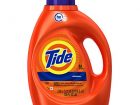Thanks to my brother Jonathan for pointing me to this exclusive story on Salon.com. If you didn’t have a chance to read my earlier blog on the fall of McDonald’s, take a moment and do it now.
Michelle Goldberg’s excellent expose (full story requires subscription and registration) on the state of McDonald’s internationally fits in nicely to the state of McDonald’s fiscally and my observations of McDonald’s marketing and positioning blunders here and abroad.

But one comment I made in my earlier post shines light on what Goldberg finds to be a growing concern:
Perhaps it’s simply the fact that nobody on the team is passionate about resurrecting an icon of American consumerism. At one time perhaps more than half the world’s association of America was McDonald’s.
If half the world is comprised of fundamental Muslim extremists and anti-American (globalization) terrorists, then Goldberg has a point. The arches (need I say twin arches) of McDonald’s represent America. For any of us who’ve traveled extensively in the more rural corners of the world, I’m sure you can sympathize with the stomach cringing I experience when I find a McDonald’s in what I thought was a sacred spot. Roger Waters (ex-Pink Floyd front man) even espouses it in his song It’s A Miracle from
Amused to Death.
Miraculous you call it babe,
you ain’t seen nothing yet
They’ve got Pepsi in the Andes,
they’ve got McDonald’s in Tibet
Yosemite’s been turned into a golf course for the Japs
And the Dead Sea is alive with rap
According to Goldberg, last Thursday “a bomb tore through a McDonald’s in Makassar, in eastern Indonesia, killing at least three.” And this isn’t the first incident of American backlash targeted at the icon of America and its obsessive consumerism.
- 11/20/02 – Riyadh, Saudi Arabia – McDonald’s is torched
10/19/02 – Moscow, Russia – Bomb explodes outside McDonald’s - 10/09/0-2 – Temuco, Chile – Bomb explodes in Southern Chile McDonald’s
09/ 2002 – Beirut, Lebanon – Small bomb rips through McDonald’s franchise
04/19/02 – Dinan, France – Bomb kills McDonald’s employee
09/ 2001 – Xian, China – McDonald’s is bombed
09/ 2001 – Istanbul, Turkey – Pipe bomb explodes in McDonald’s
Since 1990, franchises have been bombed or burned in France, Belgium, Mexico, London, Chile, Serbia, Columbia, South Africa, Turkey and Greece.
And an explosion in Bombay McDonald’s yesterday is attributed to HVAC issues. True or false?
What is it about McDonald’s, once the darling success story of America, which prompts attacks like these? And it’s not just fanaticism from international extremists, the attack domestically is less violent but equally detrimental.
[…] the Golden Arches have become a Rorschach test of domestic and international discontent, mirroring anxieties at home and abroad. In United States, the company is blamed for the obesity epidemic, today’s hot-button medical panic. McDonald’s faces two separate lawsuits from customers claiming the food made them fat. One was filed by 56-year-old 270-pound Caesar Barber, the other by 19-year-old 270-pound Jazlyn Bradley and 14-year-old 170-pound Ashley Pelman. In Europe, McDonald’s symbolizes a gauche, encroaching hyperpower and the decline of national Epicureanism. To pro-Palestinian activists, McDonald’s helps keep Zionist expansion alive by investing in Israel. And to terrorists, it offers a way to strike at the heart of the American global economy […]
My blog post in November was prompted by the fact McDonald’s public statements on how it is addressing lackluster earnings, falling stock price and public discontent. And as Goldberg notes, an important key to McDonald’s continued success is its ability to expand outside an already saturated fast-food market (I’d prefer to call it wasteland) in the United States. But since 9/11, anti-American backlash makes it difficult for American companies abroad to do business as usual.
[…]”In many parts of the world if people can’t reach the embassy, there’s always a McDonald’s,” says James L. Watson, a Harvard professor of anthropology who studies McDonald’s, particularly its function as a “worldwide political target.”
Fast-food bombings began after the Cold War, when opposition political groups — whether it was Chilean splinter group FPMR/D or the Greek Fighting Guerrilla Formation — started to focus more on the sources of “cultural power,” Watson says: “to questions of cultural imperialism as opposed to rather old-fashioned forms of military imperialism.” […]
Perhaps the most fascinating discovery I made from the Goldberg article came from the awareness that Harvard University has on staff a professor of Anthropology who’s dedicated to studying McDonald’s with an emphasis on its role as a political target. The professor, James L. Watson, also authored
Golden Arches East: McDonald’s in East Asia.
[…] Fast-food bombings began after the Cold War, when opposition political groups — whether it was Chilean splinter group FPMR/D or the Greek Fighting Guerrilla Formation — started to focus more on the sources of “cultural power,” Watson says: “to questions of cultural imperialism as opposed to rather old-fashioned forms of military imperialism.” […]
I’m not sure if Watson is subscribing to the concept that survival necessitates the existence of enemies – real or not — or whether he’s trying to grasp for answers to questions that defy translation and understanding across cultural boundaries. But the attack of globalization certainly has been more visible and existed before the attacks on the symbols of American power on September 11, 2001.
[…] As dissidents have become more sophisticated about the mechanics of globalization — its effects on local agriculture, health, mealtime rituals, domestic economies and cultural homogeneity — reasons to hate McDonald’s have multiplied, so that right now opposition to the chain is coming from several different, occasionally overlapping, directions. […]
In many ways it all comes back to the high priestess of marketing: branding. Icons so prevalent and strong as McDonald’s, Coca-Cola, Marlboro and others have transcended traditional brand associations such as quality, consistency, freedom and more. Outside our fair country, these brands have become associated with America. Like it or not. They represent our capitalistic and consumer-focused society. And it was the fear, distrust and hatred of capitalism that fueled a collective society where communism (believers fought) should prevail worldwide. Sadly, these same reasons contribute to the rationale Muslim extremists use to instigate anti-American sentiment among its rank and file. This time though, it’s in the name of Allah, rather than “the people”.
[…] But in the Middle East, it’s Zionism, not turbo capitalism, that has people enraged. There, McDonald’s is part of a much larger boycott of American companies — including Starbucks and Coca-Cola — that operate in, or support, Israel. As the British Guardian reported in November, “During the past year business at western fast food and drinks firms has dropped by 40 percent and trade in American branded goods has shrunk by a quarter” in the Islamic world. […]
Keep in mind, many of the McDonald’s and holders of other American brand franchises are owned and operated by natives and locals. And many relentlessly try to secede from the brand roots through classic advertising and PR. But these efforts are fruitless at best.
[…] in countries where there have been bombings, the restaurants have taken out ads to say that the franchises are owned and staffed by local people. Several years ago, McDonald’s in France ran an ad using a corpulent cowboy to mock America while stressing that its food was made in France with French ingredients. Earlier this year, McDonald’s France attempted to respond to concerns that it was bringing American-style obesity to sleek French children by taking out ads warning parents not to take their kids to the restaurant more than once a week […]
I speak often on the effectiveness of a brand strategy and the importance of committing to a single-minded business and communications focus. I’m passionate about this. Over the past year, I’ve spent a portion of my discussions around the problems of branding and its subsequent backlash — not only globally, but domestically, too.
Have you heard the story about the high-school student who was expelled from school for wearing a shirt bearing the Pepsi logo? And no, this wasn’t in Iran or Iraq. This is Atlanta. The student wore the shirt on the school’s official “Coke Day”, or something similar. Hey, this is Atlanta. You can read many anecdotes like this in Naomi Klein’s anti-branding book
No Logo: Taking Aim at the Brand Bullies. And if you’re interested in more commentary on America’s fast food phenomenon, read
Fast Food Nation.
As the world continues to become more connected and smaller and McLuhan‘s vision of the global village becomes real, the rewards and consequences of a strong marketing and communications programs are much more serious than they were even a decade ago.
Technorati Tags: Advertising, Allan Karl, DigitalTavern, Marketing, Branding, Travel



